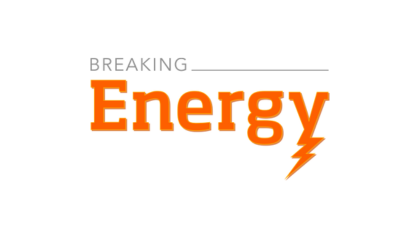
Pennsylvania lawmakers on Wednesday gave final approval to a bill that would impose fees on natural gas companies drilling in the state’s Marcellus Shale formation and allow the revenue to be used by local communities to offset the impact of the state’s booming shale-gas industry.
If signed into law as expected by Governor Tom Corbett, the bill will end Pennsylvania’s status as the only US gas-producing state that does not impose any kind of levy on energy companies for natural gas drilling.
Corbett, a Republican, blocked a production or ‘severance’ tax, as proposed by his Democratic predecessor, Ed Rendell, but agreed to the idea of a ‘local impact fee’ the proceeds of which would be used to compensate towns and counties that opt to impose it.
Public opinion polls in Pennsylvania, which lies over much of the giant Marcellus formation, have shown widespread support for some kind of tax on an industry that has sunk thousands of wells in the state since 2008, and is seen as reaping big profits from one of America’s most productive shale-gas fields.
Read more about Pennsylvania’s new natural gas wealth in a special report from Breaking Energy here.
After passage by the Senate, the Republican-controlled House passed the bill by 101 votes to 90 in a two-day debate that saw strong criticism of the bill by many Democrats who said they had not been asked to contribute to a conference committee that produced the final language.
In the House debate, many Democrats criticized the bill as taxing the industry far below the rate of other states, reducing local control over gas companies, and providing too little environmental protection.
House Minority Leader Frank Dermody called the bill “the biggest corporate giveaway in Pennsylvania history” and said it “takes away the right of local governments to control their own destiny.”
But Republican Garth Everett, urging members to vote for the bill, argued, that it would provide adequate environmental protection from the activities of an industry that is creating thousands of well-paid jobs.
“You are not going to see well pads plopped down next to somebody’s home in the suburbs,” Everett said.
The impact fee is designed to address public concerns over the controversial process of hydraulic fracturing, or “fracking“, which uses a range of chemicals to help break open gas-bearing fissures in the shale, and is accused by opponents of contaminating aquifers with toxic materials that can cause cancer and other illnesses.
“This new industry has brought economic growth but it has also brought new challenges,” said state Senator Joe Scarnati, in a statement after the Senate vote. “I believe we can have the jobs that this new industry brings, and we can still protect our environment in a balanced way.”
U.S. policymakers, seeking to exploit a rich and cleaner-burning domestic energy source while creating jobs, are seeking to quell public concerns over the safety of shale drilling that have led to moratoria in New York state and the Delaware River Basin, while prompting an outright ban in France.
In response, the Pennsylvania bill requires operators to disclose the chemicals used in fracking, increases well-bonding fees, raises penalties for environmental violations, and lengthens the spacing between wells, homes and drinking water sources.
With natural gas prices at their lowest since 1992, the new law adjusts the tax depending on market conditions, the age of each well and, from 2013, the rate of inflation. But it is not dependent on the volume of production, so avoiding any accusation that it is a new tax, like those charged by many other gas-producing states.
If the average annual price of the near-month contract on the New York Mercantile Exchange is $2.25 or less per million btus, a gas driller will pay $40,000 for the first calendar year of a well’s operation, rising to $60,000 if the price is $5.99 or more.
By the third year, operators will have to pay $25,000 per well in the third year that a well produces gas, if the average price is $2.25 or less, falling to $10,000 in years four to 10.
Overall, the fee is expected to raise about $3 billion over 10 years.
Revenue will be paid into a fund administered by the Pennsylvania Public Utility Commission.
Sixty percent will be paid to counties and municipalities which may spend the money on areas including construction or repair of roads and water or sewage systems; environmental programs, and social services.
The remaining 40% would be used for statewide environmental projects including acid mine drainage remediation and hazardous sites cleanup.
Counties that decline to impose the fee can be forced to do so if at least half their municipalities vote in favor.
Photo Caption: The state capitol building in Harrisburg, Pennsylvania.
